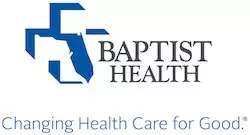

Your leaders, teams, and workforce are the backbone of your organization. They are capable of achieving extraordinary things when they are at their best. The question is, how do you transform your self and your culture to unlock their full potential?
Introducing the MSHH formula – a six-month program designed to provide continuous training and coaching based on the latest research in neuroscience, neuropsychology, neurocardiology, epigenetics, and biology. With our program, you will gain access to an abundance of tools, techniques, and practices that not only help your staff unleash their full potential at work but in their personal lives as well.
We understand that change is never easy. That’s why our team of experienced healthcare leaders and practitioners partner with you to ensure that you and your staff successfully execute any change initiative. When your leaders and teams operate from a place of possibility, they work without resistance, leading to successful implementation of past initiatives.
Participants in our program report breakthrough shifts in their ability to solve problems faster and outside of the current box. This leads to elevated performance and a newfound sense of compassion, patience, stress reduction, peace of mind, collaboration, innovation, and conscious leadership.
Let the MSHH formula empower your team to reach new heights and unlock their full potential.
Set Up Your Free 30-Minute Discovery Call Now
Resources
Ebook
Ready Schedule?
“I am thoroughly satisfied with the outcome of this workshop to help my team create our new future. In the 60 days post workshop, 100% of my team confirmed they have been able to apply what they learned. I know that this workshop and the impact it’s had on the team has been a factor in getting them back on track and focused to deliver on our vision and strategy.”
Marie Quinton
Operations Manager, Cisco
“[This] helped me understand why it’s so hard for humans to change, and gave me tools to overcome that challenge. The program cultivated my interest in Neuroscience and inspired me to apply its concepts in my day-to-day life, which is making a big difference.”
Natalia Correa
Research and Insights Manager, Google
“Being a more conscious leader allowed [my staff] to recognize when they were living in survival mode, which left them being less productive, ineffective team members who lacked creativity, and were adverse to taking risks… and shifted them into creation mode to become more proactive, effective and coherent team members.”
Eduardo Gutierrez
President and General Director, IBM, Mexico
“This training taught us what change is and how to use the power of our brain to create and sustain it. The simple, down-to-earth approach enabled our leadership team to shift our mindset to enable a greater level of creativity and innovation to face the challenges awaiting us… We developed communication and relationship skills to apply to the unique opportunities we faced. We dared to be different. Our people feel different, which has greatly contributed to our unprecedented success… We created better, more thoughtful leaders.”
Peter Edge
President and CEO, RCA Records/Sony Music







